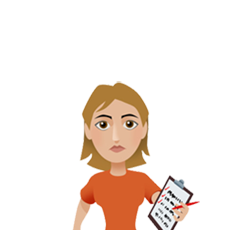Lessons to Teach Teens Before They Leave Home

Article continues below...
Want to Motivate Kids?
Download a free tipsheet "The Parent's Guide to Motivating Your Complex Kid" to help your child find the motivation to do... anything and everything!
A Letter To My Teen Leaving Home: Revisited
A couple of years ago, I wrote a letter to my teen who was leaving home. It was written in one of those 2 o'clock in the morning moments of clarity (laced with a little panic).
It's a great check-list for all parents of complex kids to use as you begin to help your child understand the different ways that they'll have to take care of things for themself. It was written so that you can personalize the article, print it out, and start a conversation with your teen.
Now, two and a half years later, I want to add to that “critical” list. This time, I want to address other conversations you might want to have with your child as you're preparing for him to leave home.
New Insights
So, here are some other messages I think are really important to teach your kids before they leave home. They're not so much about how to take care of the logistics of life, as they are how to handle some of the emotional challenges that come with independence.
- It's okay (actually, really good) to learn to ask for help. You don't have to do everything on your own.
- You're not supposed to KNOW how to do everything – that's why they call it growing up and learning. So ask if you're not sure – no one will think less of you if you don't know how to use a coin laundry machine (that's a machine that you put money into in order to wash your clothes!).
- It's still okay to “throw me under the bus.” If you need to “blame” your Dad or Mom for decisions that are hard to make with your peers, that's still okay.
- Don't post anything on ANY social media that you wouldn't want your grandmother to see. Everything you post or write, anywhere on a computer or screen or even a piece of paper, can come back to haunt you later in life. Remember, Grandma already knows where you live and go to school – so need need to share those!
- Make good choices.
- Worry more about what you think than about what your friends “would think.”
- Technology is an amazing tool. It's a tremendous way to stay in touch with friends and family, to learn, and to be entertained. It's also a dangerous weapon. It's a slippery slope that can harm relationships, hijack you from your education, and take you down some rabbit holes that are not so warm and fuzzy. It's up to you how you choose to use technology in your life. I recommend you use it as a tool, not as a weapon.
- Being a good friend takes time, energy and attention. Trust your gut, be kind, and try not to take it personally when other kids do things that hurt your feelings. They're learning, too. Be forgiving (but don't be a doormat.)
- If you don't feel comfortable talking with your dad or me, find a grownup you do trust to talk with when you need advice. You don't have to follow it, but it certainly helps to get other opinions from people who have some life experience, and who are not all your age.
- If you have a friend in serious trouble, confidentiality needs to be secondary to health and safety. Whether someone is hurt by others, or hurting themselves, stand by them – and encourage them to seek help. Don't try to solve it all on your own.
- On the one hand, don't let money stand in the way of doing something important to you. On the other hand, earn your own money so that you're not beholden to others.
- Open your mail regularly and do something with it (email and snail mail).
- Check in with friends and family when you're thinking about them. A simple text or voice mail will go a long way to keep relationships strong. It's really easy to make your mom, grandmother or younger sibling happy – just by letting them know you're thinking about them. Don't wait until you have “time to talk” to reach out.
- If there's something you know you want to do, either write it down or schedule it!
- Last but not least, this is your life – go live it! Don't wait for someone else to tell you what you “should” be doing.


